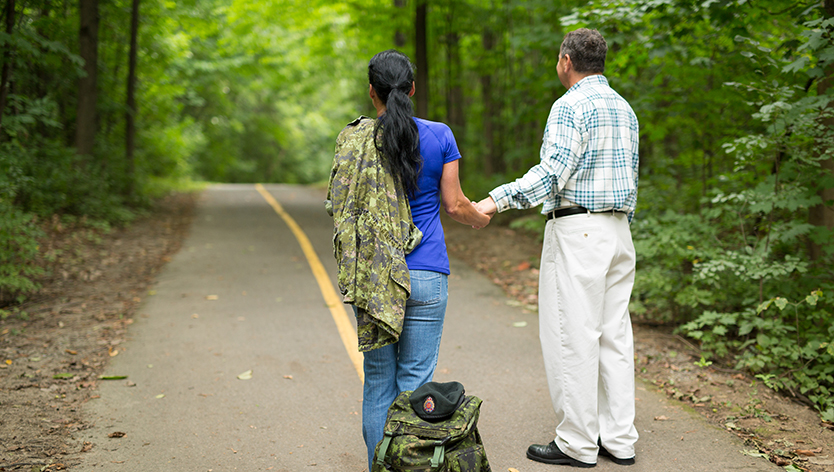FAQ for Parents of New Recruits

Post Graduation
-
What happens to members after basic training?
From basic training, the platoon will be separated and all members will be going in different directions to different bases, wings, RMCC, St. Jean and Civilian Universities. A posting message will be given to each member outlining the next steps of their training. They will be given an itinerary, travel orders of where & when to report, how they will be travelling, and to which base /wing they are to report to.
-
Will the member be allowed to come home at Christmas or holidays?
Block Christmas leave or holidays will be designated by the school\training unit. Otherwise it will be up to the member to choose their leave and their location.
-
Where will the member be living when they get posted after training?
Each member will receive a posting message to a base/wing after their trades training. In most cases, members will live in barracks when they arrive at their new units.
-
Will the member have any time off during trades training?
Time off during training will depend on the trade school/unit and their training schedule. Members will have to wait until they have started training to find out any detailed leave information.
-
When can the member move their furniture from home to the base where they are posted?
It is suggested that a member doesn’t move anything until they have a permanent posting message to a location. The member will be told when a location (posting) is permanent and when they can move their possessions.
-
Does the member need a Will?
Each new member will fill out a Canadian Armed Forces (CAF) Will upon enrolling. This Will is valid as long as the member is enrolled in the CAF and the beneficiary can be modified at any time.
-
When does the member change their permanent address on their driver’s licence, insurance, and so forth?
The member will only change their permanent address on their driver’s licence, insurance and other personal identification when they are permanently posted to a location. A permanent posting will be identified to the member.
-
Where does the member go to get their Trades or Classification Qualification?
The base/wing will vary depending on the training qualification course.
-
Does the member pay for every trip home when they visit?
The member’s Unit Clerk will provide travel details to the member. The member can also look up the information (under Benefits and Compensation) on a DND Website and computer.



